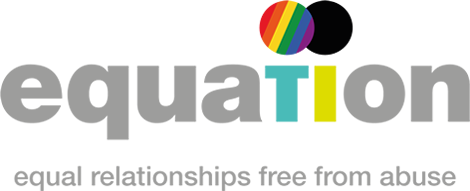Why awareness of additional barriers is key to supporting domestic abuse survivors
In this blog, we’re taking a look at why domestic abuse survivors with specific, additional barriers often remain ‘hidden’ and how we can better support them.
While domestic abuse impacts people from all walks of life, some survivors face unique, extra challenges that make accessing help and rebuilding their lives, even harder. Barriers linked to mental health, caring responsibilities, cultural differences, or age – can leave survivors feeling overlooked or trapped.
In this post, we’ll explore why it’s crucial to understand these additional barriers and how Equation’s Domestic Abuse & Additional Barriers Learning Series is helping professionals and communities work together to create safer, more inclusive support for everyone.
What are ‘additional barriers’?
Survivors of domestic abuse often face tough decisions and obstacles when trying to get support. For some people, these obstacles can be even bigger due to circumstances outside their control or systemic issues. These are the “additional barriers” we’re talking about.
A few examples:
- Culture or language differences: Survivors from ethnic minority backgrounds might worry about bringing shame on their family or face a lack of services that understand their cultural needs.
- Disability: Survivors with disabilities might depend on their abuser for care or have trouble accessing safe spaces that meet their physical needs, in order to get support.
- Immigration concerns: Fear of deportation or not being able to access public funds can leave survivors trapped in abusive relationships.
- Neurodivergence: Some people with neurodivergence can be at extra risk of abuse because of how they perceive the world. Survivors who are neurodivergent may also face unique challenges, such as communication with others, difficulty navigating complex systems, being misunderstood by professionals, or finding services that
- Mental health: For someone experiencing anxiety, depression, or other mental health conditions, reaching out for support may be too daunting. They may worry about not feel believed or they may miss appointments or become disengaged with support that’s not tailored to them.
- Age: Younger survivors may feel unsure of who to trust and might also feel dismissed due to their age, while older survivors, particularly those with dementia, might face difficulty being taken seriously or accessing age-appropriate services.
- Parent or carer responsibilities: Survivors who are parents or carers might prioritise the needs of others over their own safety, or feel trapped because they depend on the person who’s abusing them, for childcare or caregiving.
- Money issues: Not having financial control can make leaving seem impossible.
- LGBTQ+ discrimination: Survivors in LGBTQ+ relationships might fear discrimination or judgement from services. They may also feel unsupported or misunderstood by services that aren’t tailored to their needs or experiences. The reality is, no two survivors are the same, and understanding extra challenges is key to providing the right support at the right time.
Equation’s learning series
Equation has developed a range of training focussing on different aspects of this topic. In our Domestic Abuse & Additional Barriers Learning Series, we’re holding free seminars and training sessions designed to shine a light on these various challenges faced by survivors, and promote practical, actionable steps to remove these barriers to support and safety.
Funded by Nottinghamshire County Council, this series brings together experienced trainers and guest speakers to share their knowledge and practical advice. Whether you work in a related field or simply want to learn more about how to help, these sessions are for you.
What’s in the learning series?
Equation offers free expert-led seminars backed by recent research. These sessions cover barriers survivors face and practical ways to work through these. Whether its tips on supporting disabled survivors, understanding cultural differences, or creating safer spaces for LGBTQ+ people there’ll be plenty of practical advice you can use right away.
Who should come along?
This series is open to anyone who wants to learn more about domestic abuse and how to offer better support. It’s perfect for:
- People who work on the frontlines, like social workers, teachers, healthcare professionals, or the police.
- Charity workers, volunteers, and anyone involved in domestic abuse prevention or survivor support.
- Employers and HR professionals who want to create safer workplaces.
- Community leaders or anyone who wants to make a difference.
If you’re someone who wants to understand more about the barriers survivors face and how to help them, these sessions are for you.
Find out more and reserve your place
See our topics and book your spot or if you’d like to ask us anything, drop an email to training@equation.org.uk.
Is it abuse
Not sure if what you're experiencing is abuse?
Get help
Stalking advisory service
Find out more.
How you can help
No matter how much time, money or resources you can afford to give, your support will make a difference.
£10
Give monthly
Could pay for four children
to take part in our early intervention projects
£30
Give once
Could pay for one primary school child to receive our healthy relationship education program
Support equation
Check out the other ways you can support us

